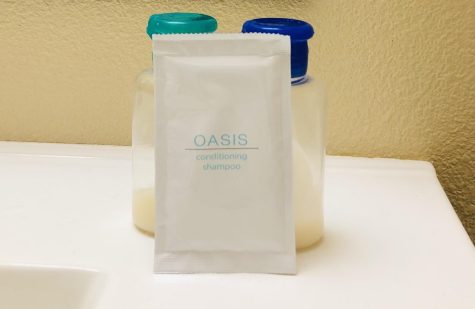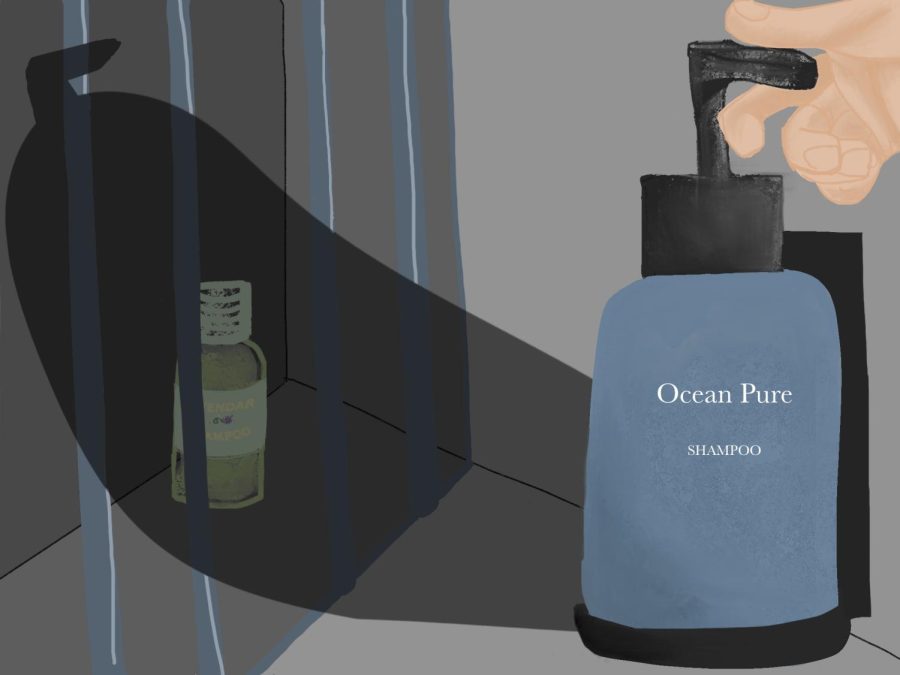A 2019 bill Gov. Gavin Newsom signed has recently come into effect in 2023, banning the use of single-use plastics for bathroom essentials in California hotels with over 50 rooms.
The bill, titled “AB 1162 Lodging establishments: personal care products: small plastic bottles,” was written by California Assemblymember Ash Kalra and approved by Newsom on Oct. 9, 2019, to take effect on Jan. 1, 2023. The bill will ban single-use plastic bottles in hotels with less than 50 rooms in 2024.
The small, single-use plastic bottles mentioned in the bill are defined as “containing a personal care product to a person staying in a sleeping room accommodation, in any space within the sleeping room accommodation, or within a bathroom shared by the public or guests,” according to California Legislative Information.
The goal of the bill is to reduce the amount of plastic waste in the environment and serve as a model for the nation to follow.
In order to bring this goal to fruition, the bill additionally allows for local agency enforcement through inspection of hotel rooms. Lodging establishments that do not meet the requirements must pay $500 at the first violation and $2000 total for subsequent violations each year.

For Arizona resident Bryce Ortiz, a guest at the Belmont Holiday Inn Express, the bill in practice makes noticeable and beneficial changes.
“It’s always good to start somewhere. Not having the bottles is better, but I can imagine that people who take them home might be mad about it,” Ortiz said.
Additionally, positive sentiments about the bill come from the bill’s impact on vacations.
“If you go on vacation, you’re not as conscientious as you usually are at home. You’re not going to bring your reusable bags or mugs. So sometimes when you’re staying in hotels, you don’t want to, but it’s really easy to use the disposable cups,” Ortiz said.
The new ban not only reaches guests but also influences the jobs of hotel employees.
Juliana Villarreal, an employee in charge of checking rooms at the Belmont Holiday Inn Express, says that the new restrictions make her and her coworkers’ work easier.
“The Inn’s implementation of the bill in the past four months makes our handling of these products easier and less complicated because we fill the bottles all the time and since they are now stuck on the wall it’s not as hard to keep them full,” Villarreal said.
The benefits of the new bill are also recognized by Kamille Lang, the Climate Action and Youth Engagement Specialist at the San Mateo County Office of Education.
Lang believes the new policy will create more demand and new requirements for the packaging of bathroom essentials distributed to hotels.
“It will be exciting to see how individual behaviors and cultural norms will change over time with this initiative. I hope that we will see more people opting to purchase hygiene supplies in bulk unless necessary for their traveling. Perhaps we might see more easier-to-recycle or biodegradable materials in the future as more people start to understand and prefer sustainability in the size of their hygiene items,” Lang said.
In order to approach bigger changes, Lang says it is important to use systemic thinking.
“If hotels are being required to ban single-use plastics, then the providers of those supplies will need time, tools, and resources to update their infrastructure to accommodate this. Hotels might need more sustainable consultation support to consider the most cost-effective option for removing plastic items from their rooms. It is not just a quick fix when policies are updated, and it takes time to meet those expectations sufficiently,” Lang said.
Lang points out that although the change would take some time to implement throughout California, it will be a milestone achievement for the joint accountability in policy changes that hold businesses responsible for sustainable solutions and waste reduction.
However, concerns remain around this bill regardless of its industrial impact.

“I can’t take home their complimentary shampoo and conditioner anymore, but I’m also concerned about how sanitary it is to have everyone use the same shampoo bottle,” said Catherine Wang, a sophomore. “I get that it’s trying to make sure we don’t waste so much plastic, but I bring my own shampoo anyways because the shampoo in hotels isn’t that great.”
Nevertheless, for climate action specialists like Lang, the future of sustainability will continue to look brighter as long as ordinary people share and implement the initiative of this type of legislation.
“The more we individually choose to reduce and reuse both in the hotel setting and throughout our day-to-day lives, we can start changing our behaviors and adding pressure to the systems we function in for a more sustainable and resilient future,” Lang said.























